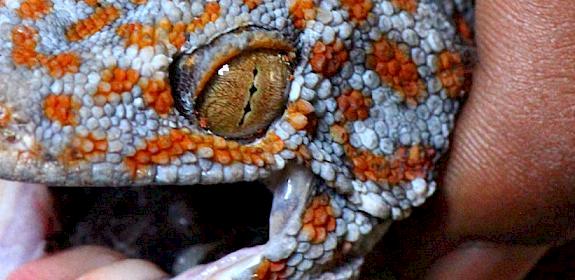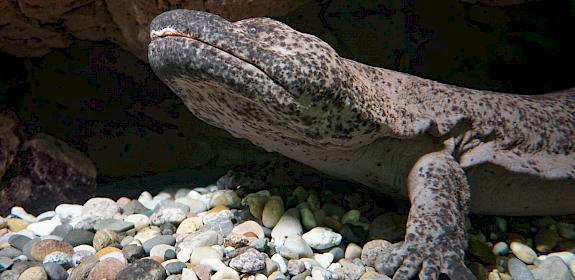
Slipping away International Anguilla eel trade and the role of the Philippines
Giant Mottled Freshwater Eels Anguilla marmorata © Jürgen Freund / WWF
i
- »
- Publications »
- Reports »
- Slipping away: International Anguilla eel trade and the role of the Philippines
Slipping away: International Anguilla eel trade and the role of the Philippines
Philippines, 3rd November 2014—Despite the introduction of a precautionary ban on juvenile eel exports, large quantities continue to leave the Philippines to meet high international demand, finds a new joint report from TRAFFIC and the Zoological Society of London (ZSL).
Slipping away: International Anguilla eel trade and the role of the Philippines
Report author(s):
V. Crook
Publication date:
November 2014
key findings
The latest Darwin-initiative funded study, Slipping away: International Anguilla eel trade and the role of the Philippines (PDF, 2.5 MB), carried out in collaboration with the Philippine Bureau of Fisheries and Aquatic Resources (BFAR) and the Philippine Biodiversity Management Bureau (BMB), provides an overview of Philippine eel catch and trade and, in particular, its role and importance at the international level for supplying juveniles (glass eels) for farming.
The high demand for eels from the Philippines follows both low recruitment of glass eels and the introduction of various catch and trade restrictions to protect declining eel populations in traditional European and East Asian source countries, in recent years.
According to the study, between 2004 and 2013, the Philippines exported mostly live eels and the main destinations for these were the four principal eel farming/consuming countries/territories in East Asia: mainland China, Japan, Republic of Korea and Taiwan, in addition to Hong Kong, which is a major trade hub for live eels. In 2012 and 2013, the Philippines was the source of approximately 30% of all East Asian glass eel imports.
Owing to the dramatic increase in exploitation and price of glass eels in the Philippines in 2011 and 2012, in May 2012 BFAR brought in a precautionary measure banning the export of juvenile eels less than 15 cm in length. However, Customs data, seizures and online advertisements indicate that shipment of eels below the size authorized to be exported from the Philippines has continued, illegally, despite the ban in place. There are 16 species of eels in the genus Anguilla, distributed throughout temperate and tropical waters. Various life stages of eels, ranging from juveniles to adults, are harvested and traded on a global scale, with current demand being mainly for consumption in East Asia.
Breeding eels in captivity has not yet been successful at a commercial level, so “eel farming”, which is responsible for over 90% of all Anguilla eel production worldwide, is currently still reliant on growing out wild‐caught juvenile eels.
The report clearly demonstrates the ever-changing dynamics of eel trade and how reductions in the availability of European and Japanese eels, in particular, have resulted in increased exploitation and pressure on new sources, including tropical eel populations
TRAFFIC’s Vicki Crook
The report outlines recommendations for eel conservation and management, both in the Philippines and more widely. These cover improved data collection, monitoring and availability; legislation and enforcement; and collaboration and consultation with a wide range of stakeholders.
“The situation in the Philippines demonstrates a clear need for co-ordinated global action to secure sustainable, legal supplies of eels to meet world-wide demand,” said Crook.
Approximately 30%
of all East Asian glass eel imports in 2012 and 2013 originated in the Philippines
More than 90%
of all Anguilla eel production worldwide, is reliant on growing out wild‐caught juvenile eels
15 cm
the minimum length of glass eels that can be exported from the Philippines: a measure introduced owing to the dramatic increase in exploitation and price of glass eels in 2011 and 2012.



